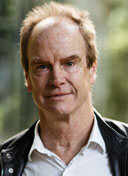|
||||||||
|
||||||||
If the enemy is the source of all evil, and the ‘we’ that would exist were that evil to be eradicated is inherently good, then the leadership which directs the struggle to destroy the evil is the personification of the principle of good. The leader stands in as the charismatic representation of the ‘will of the nation’ and, as long as it is believed that he represents that will, any activity that he initiates will be seen as ‘necessary’ for the redemption of the whole. Some people interpret the world in terms of a dualism—dividing all the elements of the social field into friend and foe (self and Other). In most instances, such people are perceived as paranoiac and, if their violence proves endemically disruptive, are institutionalized. Certain discursive structures, however, draw upon the psychic opposition of antagonist and ego by establishing—as real and normative—a world polarized between obdurate enemies and a community threatened by them. In these nationalist rhetorics, all real fulfilment follows from the realization of the Nation. The ‘other’ (whether Jew, Croat, Muslim, Serb, Albanian or whatever) is inscribed in that rhetoric as that which has as its only reason for being the desire to deny, steal and destroy the national identity; to destroy that which gives one what one wants and makes one what one really is. The ‘other’ steals land, rapes women, desecrates holy objects and, finally, annihilates the community in which one finds one’s identity. These rhetorics set up the Nation’s ‘others’ as incarnations of the demonic antagonist threatening pleasure at the very root of its being. This structure was set in place by propaganda which evoked the future ‘restored’ nation as a fantastic object promising the utopic recuperation of pleasures lost when, in some hazy past, the people were exiled from their ‘homeland’; and as a demonic antagonist standing as the antithesis of will and desire. However, while the promised ‘motherland’ is sketched in these nationalist rhetorics in edenic yet imprecise terms—the evil of the antagonist and the heroic devotion of the national leader to its extirpation are portrayed with graphic realism. In the nationalist fantasy, it is the leader and the enemy which are the crucial, and operative, elements. One fights against the enemy under the guidance of the leader in order to ‘recover’ the nation. But since access to the pure enjoyment of being that the nationalistic rhetoric claims will be afforded by the defeat of the enemy is always already blocked—the destruction of the enemy will always prove inadequate. Implicit in the psychic structure on which nationalist rhetoric draws is a spiral of violence which leads members of the national community to always, at the moment of victory, seek yet another enemy who can be blamed for the ‘real’ nation not being in the place they have just recovered from the enemy they have just defeated. If the Nazis had had the opportunity to exterminate every leftist, Jew, cripple, homosexual, and Gypsy that could be blamed for blocking the advent of the ‘Thousand Year Reich’ they saw as their true heritage, they would have had to begin exterminating those Germans who, despite fitting all the criteria of ‘pure Germans’, were nonetheless the causes of the failure of the Millennium to materialize. Vesna Peši suggests that the same logic operates in the Serbian instance when she writes that “after ethnic cleansing we will soon have traitor cleansing”. They succeed in doing so through the discursive construction of enemies of the nation which not only serve as scapegoats to be blamed for everything which goes wrong both in society and the lives of its members but also function to evoke—through their negativity—a national positivity which people can fantasize would suddenly and paradisaically emerge if the enemy were to be destroyed. |

